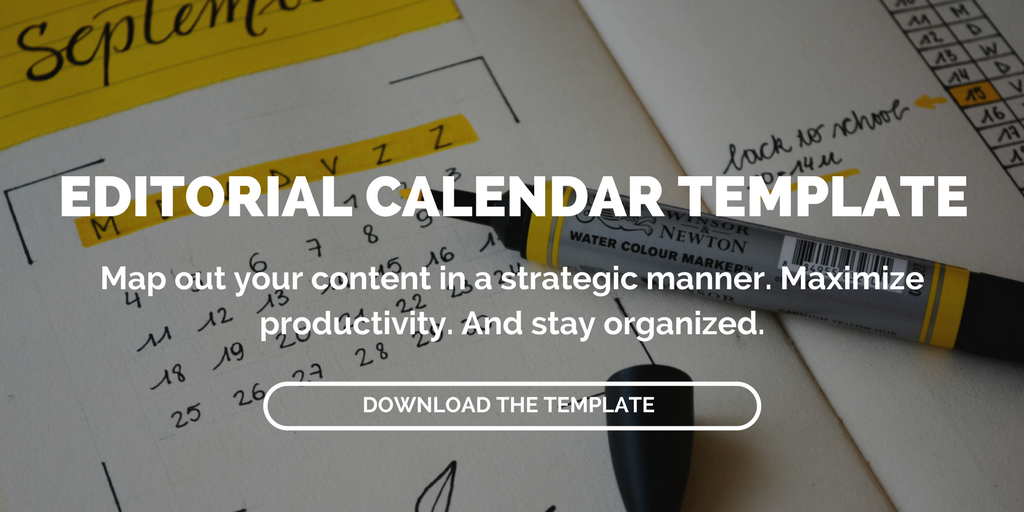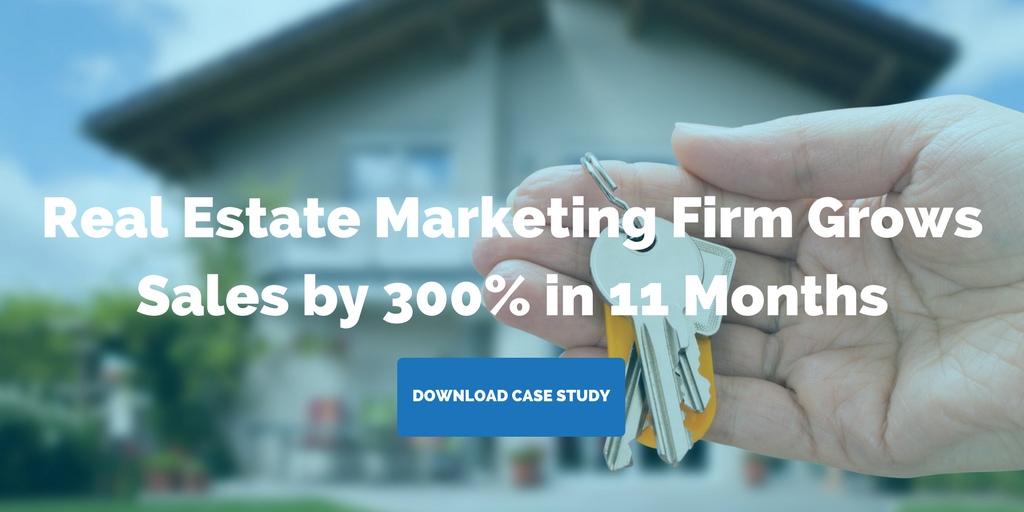Your search results for "Marketing automation"

Marketing Trend: Marketing Automation for Real Estate
Real estate marketers can use marketing automation to drive efficiency and be more successful in earning and converting leads.
As your real estate brand grows, more and more tasks fall on your plate and digital marketing can seem daunting and time consuming. But marketers know the importance of a digital marketing strategy, so how to juggle these demands? The answer is automation.
HubSpot recently reported that businesses using marketing automation to nurture leads received a whopping 451% increase in qualified leads. So how can you reap these benefits? Let’s take a quick look at marketing automation for real estate.
What is marketing automation?
Marketing automation is the process of automating certain repetitive marketing tasks. It’s designed to support multiple channels, so your marketing efforts (and your brand) stay consistent across the board.
More and more people searching for apartments and condos are looking for a personalized experience. This makes marketers’ jobs increasingly more difficult as they have to produce relevant and informative content mixed with personalized messages. Marketing automation can help provide custom lead-nurturing content that helps convert prospects to buyers.
Examples of marketing automation for real estate
Automation can be used in a variety of ways throughout the buyer’s journey. Start with a documented strategy to outline exactly what outcome you’re hoping to produce. What do you want your marketing automation efforts to accomplish for your real estate brand? Top marketing goals for content marketers include converting contacts/leads to sales, growing website traffic, and increasing revenue.
After you identify your goals, you can find marketing automation tools that align. Here are some examples:
- Chatbots
- Social media scheduling tools
- Thank-you, welcome, and other triggered-by-an-event emails
- Event reminders
- Email workflows
Benefits of marketing automation
Save time
One of the most obvious benefits of marketing automation is saving time. Having the ability to schedule social posts, automate email workflows, and answer questions on your website via chatbot allows real estate marketers to stay relevant without sacrificing other responsibilities.
Build brand awareness
It’s important for customers to recognize your real estate brand. Brand awareness builds confidence in your properties and what you’re selling. Using marketing automation can get your brand in front of new audiences, as well as keep you on the forefront of prospects you’ve already engaged with. Through emails, social media posts, and paid advertising your brand can continue to build brand awareness while you’re focusing on other aspects of the business (or having lunch!).
Data-driven approach
Most marketing automation tools offer data to track your marketing efforts. This data can determine which marketing efforts are working and which aren’t. From workflow emails to push notifications, marketing automation software can streamline your strategies and make them more efficient.
Final Thoughts
Marketing automation can provide your leads with more personalized experiences. That will increase the chances that they’ll buy (or lease). But it won’t take up more of your time. In fact, it will free you up to provide value in other areas that can’t be automated (like content creation). It’s really a win-win.
Related posts:
- Real Estate Marketing Trend 2019: Influencer Marketing
- Our 6 Favorite Marketing Automation Tools for Real Estate Marketers
- How to Increase Leads with Chatbots
Your search results for "Marketing automation"

Marketing Automation for Real Estate Marketers is Key to Lead Generation
Real estate marketing is an increasingly complex undertaking. Luckily, marketing automation for real estate is here to help you streamline your efforts.
Highlights:
- Marketing automation tools automate the process of personalizing leads’ interactions with your properties
- Create email workflows, schedule social media posts, and streamline CRM with automation software
Real estate marketing is a massive undertaking, which only grows in complexity as real estate buyers demand more and more personalized experiences throughout the buyer’s journey. Enter marketing automation, featuring a range of solutions for custom lead-nurturing content to all prospects in your database.
The term “marketing automation” describes a variety of tools used to automate the process of personalizing the interactions that your leads have with your properties. Email workflows, social media scheduling tools, and customer relationship management (CRM) are all examples of automated marketing. You can tailor custom email messages based on indicated interests, streamline social media efforts with scheduled posts, evaluate the success of your efforts, and adjust your strategy accordingly.
HubSpot recently reported that businesses using marketing automation to nurture leads received a whopping 451% increase in qualified leads. The same principles apply to marketing automation for real estate. Used correctly, marketing automation software can deliver real-time, personalized messages to prospective buyers and renters at every step of the lead-generation process.
With so many tools and insights available, it’s easy to get overwhelmed. Here’s our guide to what you need to know about marketing automation for real estate.
Marketing automation for real estate: Email workflows
Having a segmented email list — sorted by when a prospect joins the list, what emails they’ve opened, their demographics, etc. — is key to creating effective email workflows. With a quality list, you can ensure you’re sending the most relevant information to your prospects, keeping them invested (and keeping you out of their spam folder).
The first step is setting up a template; once you do that, you can plug in your content, manage your contact list, and schedule your emails in advance.
Our favorite tools for email workflows
1. Customer.io
This tool lets you send targeted messages to your prospects, crafting them based on how they interact with your property, and making personalized messages simple. You can also keep track of conversions and create customer profiles. Our favorite part? It integrates with your mobile app or website, letting you see data in real time and trigger actions by adding in predefined rules.
2. Constant Contact
This powerful tool has some features that are unique — and can take your marketing capabilities beyond the basics. Beyond setting up and managing an automated database, Constant Contact offers Facebook fan promotion, coupons and deals, and event management.
Social media scheduling
Keeping your posts on multiple platforms up to date, consistent, and engaging can be a major time drain. Automating your social media marketing efforts lets you plan ahead and schedule updates on some or all of your social media channels, and lets you easily strategize about peak posting times.
Our favorite tools for social media scheduling: AdRoll
AdRoll is an extremely effective tool for retargeting prospects through re-engagement on Facebook, Twitter, and elsewhere on the web. It offers cross-device and cross-platform retargeting capabilities, as well as flexible segmentation, letting you provide customized experiences that dramatically improve your marketing efficiency. It also offers customized budgeting and full control over ad spend.
Customer Relationship Management (CRM)
Converting website visitors to leads is always the goal, but it often comes with a back-breaking load of time-consuming labor. The right software lets you move your prospect through the sales funnel automatically, sending emails to educate them on the next steps, and scheduling them for viewings.
Our favorite tools for CRM
1. Pardot
Pardot is an all-inclusive marketing automation suite, but it’s particularly strong for amping up your engagement with CRM integration. It’s a great tool for helping your sales team shorten the sales cycle. And, in addition to CRM integration, it offers email marketing, lead nurturing, lead scoring, and ROI reporting.
2. Marketo
This cloud-based marketing software lets you drive revenue with lead management and mobile marketing. It not only helps build prospect relationships, but it helps you sustain them as well. Best of all, you can try it out for free until you’re sure it’s right for your company.
Select one or more of these tools, study them carefully, and get to work. Eventually, marketing automation for real estate will become second nature, save you time, and, most importantly, generate solid leads.
Related Posts:
- Our 6 Favorite Marketing Automation Tools for Real Estate Marketers
- 5 Marketing Automation Ideas for Real Estate
- Social Media Can Be a Strategic Weapon in Real Estate Marketing
Your search results for "Marketing automation"

5 Marketing Automation Ideas for Real Estate
Real estate marketers using marketing automation can save time and money while increasing leads, conversions, and overall marketing success.
One of the biggest marketing trends this year is automation. HubSpot recently reported that businesses using marketing automation to nurture leads received a whopping 451% increase in qualified leads. So how can real estate marketing professionals reap these benefits while saving time and money on their efforts?
If you’re using it right, marketing automation software can deliver real-time, personalized messages to prospective buyers and renters at every step of the lead-generation process. You can tailor custom email messages based on indicated interests, streamline social media efforts with scheduled posts, evaluate the success of your efforts, and adjust your strategy accordingly.
Check out these five ways that marketing automation can help you sell real estate, with suggested tools for each idea.
5 marketing automation ideas for real estate
1) Social media
Keeping your posts on multiple platforms up to date, consistent, and engaging can be a major time drain. Automating your social media marketing efforts lets you plan ahead and schedule updates on some or all of your social media channels, and lets you easily strategize about peak posting times.
Suggested tool: Sprout Social
2) Email
Having a segmented email list — sorted by when someone joined the list, what emails they’ve opened, their demographics, etc. — is key. This way, you can ensure you’re sending the most relevant information to your prospects, keeping them invested (and keeping you out of their spam folder). Once you set up a template, plugging in your content is easy. You’re able to manage your contact list and schedule emails in advance.
Suggested tool: MailChimp
3) Text messages
There’s a good chance you’re reading this on your cell phone, and, if not, it’s probably close by. Savvy marketers are taking advantage of the ubiquitous nature of mobile devices and using texting to reach audiences with a short message that they’re highly likely to read.
Suggested tool: TextMarks
4) Direct mail
While any number of virtual marketing platforms are beneficial, direct mail is still a powerful tool for real estate. It can be highly time-consuming to manage direct mail campaigns and mailing lists, but automation software that lets you generate geographically or demographically targeted mailing lists can help you reach your ideal audience.
Suggested tool: TriggerMarketing
5) Lead generation and nurturing
Converting website visitors to leads is always the goal, but it often comes with a back-breaking load of time-consuming labor. The right software lets you move your prospect through the sales funnel automatically, sending emails to educate them on the next steps, and scheduling them for viewings.
Suggested tool: SmartZip
What marketing automation tools are you using in your real estate marketing?
Related posts:
- What Metrics Should You Track in Real Estate Marketing?
- Social Media Can Be a Strategic Weapon in Real Estate Marketing
- When Traditional Real Estate Marketing Methods Stop Working, Try Digital Marketing
Your search results for "Marketing automation"

Our 6 Favorite Marketing Automation Tools for Real Estate Marketers
Check out these marketing automation tools for email workflows, social media scheduling, and customer relationship management.
Lately it seems like everyone is talking about marketing automation. As real estate buyers increasingly demand personalized experiences through the buyer’s journey, marketers’ jobs are getting tougher. They need to provide custom lead-nurturing content to all prospects in their databases.
And that’s where automating marketing tasks can help.
The term “marketing automation” refers to a variety of tools used to automate the process of personalizing leads’ interactions with your property. The sheer variety of these tools can sometimes be overwhelming — so we’ve pulled a few of our favorites in the categories of email workflows, social media scheduling tools, and customer relationship management.
6 marketing automation tools for real estate marketers
Email workflows
1. Customer.io
This tool lets you send targeted messages to your prospects, crafting them based on how they interact with your property, and making personalized messages simple. You can also keep track of conversions and create customer profiles. Our favorite part? It integrates with your mobile app or website, letting you see data in real time and trigger actions by adding in predefined rules.
2. Constant Contact
This powerful tool has some features that are unique — and can take your marketing capabilities beyond the basics. Beyond setting up and managing an automated database, Constant Contact offers Facebook fan promotion, coupons and deals, and event management.
Social media scheduling tools
3. AdRoll
This is an extremely effective tool for retargeting prospects through re-engagement on Facebook, Twitter, and elsewhere on the web. It offers cross-device and cross-platform retargeting capabilities, as well as flexible segmentation, letting you provide customized experiences that dramatically improve your marketing efficiency. It also offers customized budgeting and full control over ad spend.
Customer relationship management (CRM)
4. Pardot
Pardot is an all-inclusive marketing automation suite, but it’s particularly strong for amping up your engagement with CRM integration. It’s a great tool for helping your sales team shorten the sales cycle. And, in addition to CRM integration, it offers email marketing, lead nurturing, lead scoring, and ROI reporting.
5. Marketo
This cloud-based marketing software lets you drive revenue with lead management and mobile marketing. It not only helps build prospect relationships, but it helps you sustain them as well. Best of all, you can try it out for free until you’re sure it’s right for your company.
Bonus all-in-one tool: HubSpot
HubSpot is an inbound-marketing tool that lets you generate leads, close deals, and manage your sales pipeline from start to finish. It integrates beautifully with a content marketing strategy, with the goal of turning outbound leads into inbound ones. It includes revenue reporting, custom-event reporting, custom-event automation triggers, predictive-lead scoring, contacts and company reporting, and event-based segmentation.
What marketing automation tools do you use?
Related posts:
- Infographic: Real Estate Marketing Trends 2018
- 10 Social Media Statistics for Real Estate Marketers 2018
- How to Measure Brand Awareness: A Guide for Real Estate Marketers
Your search results for "Marketing automation"

How Inbound Marketing for Real Estate Works to Improve Sales
Increasingly, marketers are realizing the benefits of inbound marketing for real estate over outbound marketing, including cost savings and increased lead generation.
Marketers are constantly coming up with new and trendy ways to attract leads. With endless platforms available to us, it can be overwhelming for even the most seasoned marketers to know where they need to focus their efforts.
But what exactly does inbound marketing for real estate entail?
In order to find the right solutions for your real estate marketing needs, you first have to understand the difference between inbound and outbound marketing. And more importantly, how they can help — or hinder — your marketing efforts.
This is outbound marketing
Outbound marketing describes any marketing approach that pushes a message onto a buyer or renter. Traditional marketing — TV and radio ads, telemarketing, banner and display ads — are all examples of outbound marketing.
Another name for this marketing tactic is interruption marketing, as it typically tries to take “attention away from what your buyer is doing and bring it, forcibly, on to your product or service.”
This is inbound marketing
Inbound marketing focuses on audiences finding you. Instead of pushing a message onto buyers, inbound marketing allows you to establish your brand as an industry leader and let interested audiences come to you and your properties. This type of marketing attempts to draw in leads through interesting and engaging content.
Content marketing is a type of inbound marketing. Examples include blog posts, social media, infographics, white papers, and videos. Inbound marketing for real estate, for instance, could include blog posts that talk up the neighborhood in which your property is located, infographics that explain the purchasing process, or a white paper on how to search for an apartment.
Why is inbound marketing for real estate a good fit?
Outbound marketing used to be the “go-to” for generating leads, but this is simply no longer the case. Marketers across industries have found that inbound marketing has many advantages over traditional marketing practices. In fact, almost three quarters (68%) of inbound organizations believe their marketing strategy is effective, while more than half (52%) of outbound marketers don’t believe their strategy is effective.
According to Placester’s Matthew Bushery, “inbound is all about enticing the right buyers and/or sellers through sharing materials and resources that make them want to engage with you, rather than figuratively shoving your self-promotional messaging down their throats with over-the-top, aggressive, and — most importantly — wasteful marketing schemes.”
That’s why we think inbound marketing for real estate is better for marketers than outbound marketing.
Related posts:




